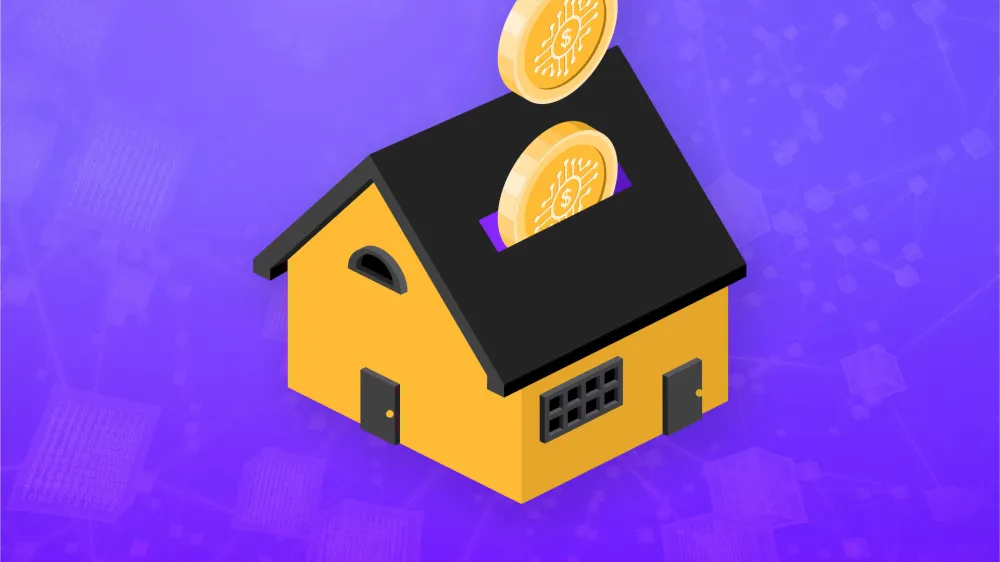
The question of whether digital assets will become the standard for everyday expenses, such as paying rent and mortgages, arises as cryptocurrencies continue their journey toward mainstream adoption. The concept that was once considered futuristic is progressively gathering traction as more property managers, landlords, and fintech platforms investigate crypto as a viable alternative to traditional banking.
The Transition to Digital Payments
The manner in which we pay for products and services has undergone a significant transformation in the past decade. Convenience and velocity have fostered innovation in a variety of forms, including mobile wallets, cards, and currency. Cryptocurrencies are the subsequent logical progression in this evolution, as they have the potential to facilitate immediate, secure, and global payments.
The concept of utilizing crypto to pay rent or mortgage installments is gathering traction, as millions of individuals possess crypto assets and a significant number of them earn income in digital currencies. It provides a direct method of utilizing crypto wealth in real life, without the necessity of converting it to fiat currencies.
Rent Payments Transition to Cryptocurrency
Some private landlords and property management companies have already begun accepting cryptocurrency as a form of rent payment. Tenants have the option to pay their rent in Bitcoin, Ethereum, or stablecoins such as USDC by utilizing platforms that facilitate crypto transactions, such as BitPay, Coinbase Commerce, or custom wallets.
This can be particularly appealing to occupants in markets where they favor crypto for privacy, speed, or as a safeguard against local currency instability. The acceptance of digital assets by landlords broadens the pool of tech-savvy renters and even international tenants.
A New Frontier: Crypto Mortgages
Although mortgage payments are a more intricate area, the concept is beginning to acquire momentum. Crypto-backed mortgages are currently being offered by a few fintech companies. In this scenario, consumers utilize their digital assets as collateral, rather than converting them to fiat or selling them.
This model enables crypto holders to obtain real estate financing without the need to liquidate their holdings, which could result in the imposition of taxes or the reduction of future investment potential. Although these crypto mortgage products are still in the early phases, they suggest a future in which digital assets can be incorporated into long-term financial obligations.
Benefits Driving the Adoption
1. **Speed and Efficiency**: Crypto transactions can resolve more quickly than conventional bank transfers, particularly when conducted across borders.
2. **Accessibility**: Cryptocurrency offers an alternative method of making consistent payments for individuals who lack access to traditional financial systems.
3. **Transparency**: The immutable record-keeping of blockchains provides a transparent, verifiable trace of payments.
4. **Decreased Fees**: Cryptocurrency has the potential to reduce transaction costs by eliminating intermediaries.
Obstacles
In spite of the advantages, there are obstacles to its extensive adoption. The price volatility of cryptocurrency is a significant concern, particularly for fixed monthly payments such as rent or mortgage installments. This may be alleviated by stablecoins; however, regulatory uncertainty regarding them persists.
Tax reporting is an additional concern. Tax filings may be complicated by the use of crypto for routine payments, contingent upon local regulations. Furthermore, the system is unevenly adopted due to the fact that not all financial institutions or property proprietors are prepared to accept or handle cryptocurrency.
The expansion of crypto’s function in rent and mortgage payments will be contingent upon regulatory clarity, improved consumer protections, and expanded education.
A View of the Future
The infrastructure for crypto rent and mortgage payments is still in the process of being developed, but the groundwork is being established. It is probable that the housing sector will experience a greater degree of acceptability as blockchain technology matures and digital assets become more stabile and regulated.
Renters and proprietors may have the opportunity to seamlessly connect their crypto wallets to real estate platforms, schedule monthly payments, or even secure loans based wholly on digital asset portfolios in the coming years. New financial entities may emerge to fill the void, or traditional institutions may begin to integrate crypto features.
In summary**
Although cryptocurrency payments are not yet the norm for mortgages and rent, the momentum is undeniable. Digital currencies have the potential to revolutionize real estate finance from the ground up as they become a routine part of how we live and pay as adoption spreads and solutions evolve.
Leave a Reply